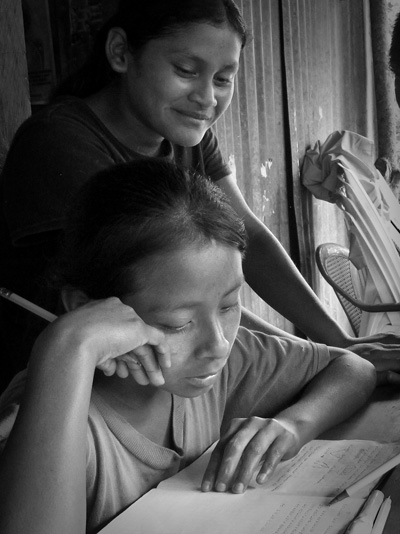Many of the world’s most widespread and persistent economic, social and cultural rights violations are systemic. Preventable maternal death or chronic child malnutrition, for example, are rarely attributable to individual acts of deliberate cruelty by clearly identifiable perpetrators. Indeed they more often result from a government’s failures to take adequate legislative, budgetary, and administrative measures; in other words, from failures to fulfill these rights.
 In order to hold governments to account for their obligation to fulfill economic, social and cultural rights (ESC rights), advocates and activists need practical tools to monitor their conduct, evaluating it against multifaceted principles such as progressive realization, minimum core obligations, maximum available resources and non-discrimination. This requires a nuanced, multidisciplinary approach drawing from the fields of economics, public policy, social sciences and law, in what can prove to be a complex undertaking.
In order to hold governments to account for their obligation to fulfill economic, social and cultural rights (ESC rights), advocates and activists need practical tools to monitor their conduct, evaluating it against multifaceted principles such as progressive realization, minimum core obligations, maximum available resources and non-discrimination. This requires a nuanced, multidisciplinary approach drawing from the fields of economics, public policy, social sciences and law, in what can prove to be a complex undertaking.
CESR is pleased to announce the publication of two new documents to support human rights advocates and other relevant actors in this endeavor. The first of these, 'The OPERA Framework', presents a practical framework for integrating multiple methods, tools and techniques to more comprehensively assess governments’ compliance with the obligation to fulfill economic, social and cultural rights. Building on decades of practical experience in human rights monitoring, the OPERA Framework—so called because it triangulates Outcomes, Policy Efforts and Resources to make an overall Assessment—articulates relevant human rights principles and standards to be taken into account when monitoring the fulfillment of ESC rights. It also offers practical guidance on which tools and techniques might be employed to evaluate how public policies comply with these principles. In this way, the framework is designed to be flexible and easily adaptable to different contexts, thereby facilitating a more systematic approach to building evidence of failures to fulfill economic, social and cultural rights.
This document is complemented by a detailed case study examining the use of the OPERA Framework to assess the rights to health, education and food in Guatemala. Entitled 'Assessing fiscal policies from a human rights perspective', the study draws on CESR’s experience of collaborating with the Instituto Centroamericano de Estudios Fiscales (ICEFI) to evaluate Guatemala’s fiscal commitment to these rights. By providing a step-by-step explanation of how the OPERA methodology was deployed to assess Guatemala’s compliance with its development and human rights commitments, it demonstrates one application of the framework that may serve as a useful example of how OPERA can be adapted in other settings.
The OPERA framework has since been applied in contexts as diverse as monitoring reproductive health policy in Kenya, austerity measures in Ireland and disaster relief in New Zealand. Taken together, these two documents may serve as practical and effective tools for human rights advocates, development practitioners, community-based organizations and others seeking to operationalize human rights principles in economic and social policy monitoring in other settings.
Progress towards meaningful protection of ESC rights, at both the national and international levels, will also require further efforts to advance the use of quantitative indicators and to develop better conceptual understanding. With this challenge in mind, CESR and its partners have convened a new working group, under the umbrella of the network ESCR-Net, to foster mutual learning and promote innovative tools and techniques for ESCR monitoring. The new initiative, which brings together a geographically disparate group of organizations which have been at the forefront of developing new methods in this arena, emerged from the CESR seminar New Horizons in Economic and Social Rights Monitoring, which was staged in Madrid in March 2012. It is our hope that this collaboration will in turn facilitate better oversight of socio-economic and fiscal policies, such as public budgets and tax regimes, to ensure they meet the requirements of human rights principles and obligations.
Photo of Guatemalan mother and child courtesy of Charlie Wright/Northwright.